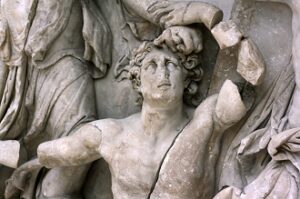
Arquivo para May 10th, 2023
Truth and Hermeneutics
It was Hans-Georg Gadamer who developed and founded a deeper criterion for  making a correct interpretation of method and truth (the name of his two-volume book) in the human sciences, and it is not about opposing the natural sciences, but giving the sciences social a soul and a “spirit”, even the one understood strictly in non-religious thought, but that actually seeks the truth and not the syllogism, pure logic or even sophistry.
making a correct interpretation of method and truth (the name of his two-volume book) in the human sciences, and it is not about opposing the natural sciences, but giving the sciences social a soul and a “spirit”, even the one understood strictly in non-religious thought, but that actually seeks the truth and not the syllogism, pure logic or even sophistry.
Gadamer clarifies right at the beginning of his masterpiece: “The fact that I used the expression “hermeneutics”, weighing an old tradition on my shoulders, certainly led to misunderstandings” (GADAMER, 1997, p. 14) .
Returning to the question of the natural sciences, the author clarifies the misunderstanding “the famous Kantian distinction between the questionio juries and the questionio facti” (Gadamer, 1997, . 16), it was not a question of a court of reason, but “.It posed a philosophical question, that is, he asked about the conditions of our knowledge, through which modern science becomes possible, and what is the scope of science” (idem).
Thus his philosophical behavior in response to the question: “what is knowledge” was developing the temporal analysis of existence: “which Heidegger developed, I think, convincingly showed that understanding is not a way of being, among other modes of behavior of the subject, but the way of being of the pre-sence itself (Dasein)” (ibidem).
Before entering the question of history, he seeks its origins by stating: “However, where is the world and the afterworld really separated? How does the vital significance of the originary pass into the reflective experience of the significance of formation?” (GADAMER, 1997, p. 17).
Humanism had not been separated from the religious phenomenon: “One should recognize and admit that an ancient image of gods, for example, which was not represented in the temple as a work of art for the aesthetic enjoyment of reflection, and which today has its representation in the modern museum, contains within itself the universe of religious experience.” (GADAMER, 1997, p. 18).
Thus, before reflecting on history, Gadamer will reflect on art, and does not fall into the dualism of subjectivism, he exposes his conviction that: “Thus, no one will convince me, objecting to me that the reproduction of a musical work of art is interpretation in a different sense than, for example, the achievement of understanding in reading poetry or looking at an image.” (GADAMER, 1997, p. 19).
The artistic experience in its “method” and “truth” is not exclusive, but it is the one that allows greater breadth in its conception of what really leads us to the “method” that guides the “truth”.
Gadamer, H.G. (1997) Verdade e método. transl. Flávio Paulo Meurer. Brazil: Petrópolis, RJ: ed. Vozes.

